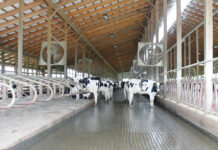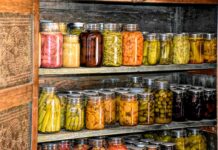If you have a more photographic memory than I, this column will look somewhat familiar.
Tax planning to avoid unpleasant surprises was as important last year as it is this year and for many of the same reasons. If, 10 months ago, you made a resolution to not put things off until the last minute – and you have put off doing anything about it – here is a chance to dust off that resolution and make it count.
Painful combination. Just like last year, there is a potentially painful combination of low commodity prices, poor crops, mounting open accounts and government crop and/or livestock program payments that can create an unpleasant surprise for the unprepared farmer when the final income tax liability is calculated for 2003.
Starting with the September final milk check, there should be some opportunities to catch up in some financial areas.
It would be wise to plan your strategies with your end-of-the-year income tax planning in mind.
Income. If your income is down substantially this past year because of price declines, your net income will probably decline also. However, you need to be careful because it could potentially increase.
Let’s say your income was down, but expenses were the same as 2002 or maybe even a little higher.
You made all your scheduled debt payments for machinery, real estate, etc. You also made withdrawals for family living, but did reduce those expenses as much as possible because there wasn’t as much money to go around as in prior years.
How did you do? So what’s left? How did you do paying your normal operating expenses during the year?
Because you might not have had enough money to pay all your bills, you may owe more money to the supply firms you buy from. You may still owe money for 2002 expenses (but we hope not).
It is also possible you owe money to other people for land rent, custom work, hay, etc.
No one plans to be in this situation, but with everything that happened in 2003 it is entirely possible.
Now to taxes. How does this situation affect your taxes?
Farm expenses are deductible when they are actually paid. So the bills that you owe as of Dec. 31 will not be deductible against 2003 income.
A worst-case scenario is that although you have made all your loan payments, your total deductible operating expenses may be less than “normal.”
Even though income is down, your net income for 2003 is increased along with increased income and self-employment tax liabilities.
What now? What to do? First, estimate your income and expenses for 2003 and compare those numbers to the same numbers for 2001 and 2002.
Income will probably be down, but are the total non-depreciation expenses down more than income? If so, is there some money available to pay on those open accounts before Dec. 31 to reduce your net income?
An obvious solution is to borrow money on an operating line of credit. If a credit line is not available, are there some other sources of money you might be able to borrow until after Jan. 1?
Is there some additional income you can generate to be used to pay bills?
Be careful. A word of caution: It can be very tempting to take advantage of no- or low-interest rate credit card or cash advance offers that seem to arrive in the mailbox by the dozen.
Realize that not only will the interest rates rapidly increase to 10 percent to 20 percent, but cash advances also charge 1 percent to 3 percent of the advance as a fee.
Minimum payment requirements on an open balance may seem manageable, but will result in years of payments at high interest rates.
While such an offer may help in a pinch, it must be ruthlessly managed if the farm is not to be caught in a never-ending cycle of minimum payments. Not meeting minimum payment requirements will adversely affect the farm’s credit rating.
Section 179. If there were some new capital purchases made during the year, be sure to look at using Section 179 expensing or accelerated depreciation options. Work with a trained tax preparer to capitalize on the opportunities out there for your business.
This is a difficult situation for any farm to be in, but with careful planning the farm may be able to borrow money to pay down those open accounts before the end of the tax year.
Without this action, the farm will need to borrow money anyway to pay the tax liabilities and will still owe the full amount on open accounts.
Look NOW. To do anything about your potential tax liability, you need to look at your financial records as soon as possible to determine where you are.
After Dec. 31 it is too late. At that point, all you can do is eat a few stale Christmas cookies, report income and expenses and write the check to the IRS.
(Dianne Shoemaker is the northeast Ohio district dairy specialist with OSU Extension. David Miller is the eastern district farm management specialist with OSU Extension. Send comments or questions in care of Farm and Dairy, P.O. Box 38, Salem, OH 44460.)
Get 4 Weeks of Farm and Dairy Home Delivered











